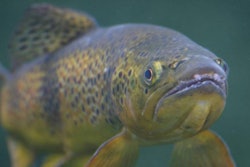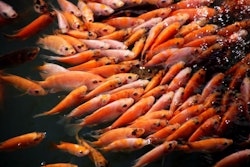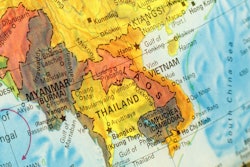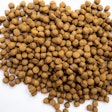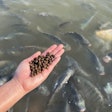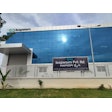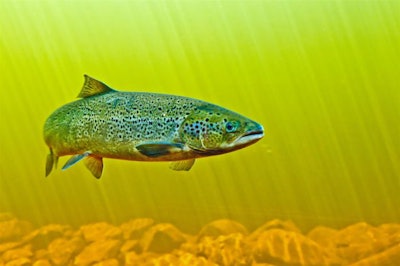
With the firm’s latest feed mill in Scotland now operational, salmon producer Mowi says it has achieved full control of its supply chain.
With two of its own feed mills, Mowi says it has gained complete control of its supply chain. Furthermore, now its second location — at Kyleakin on the Isle of Skye off the northwestern coast of Scotland, United Kingdom — is fully operational, the group has become self-sufficient in fish feed.
Among the world’s largest seafood producers, the company was formerly known as Marine Harvest.
Although the past year has brought significant challenges — not least the coronavirus COVID-19 pandemic and Brexit — Mowi’s latest feed mill is now delivering all the feed requirements of the firm’s salmon operations in Scotland, Ireland and the Faroe Islands.
With construction started in the early months of 2019, the Kyleakin mill reached full production at the end of that year.
Full capacity of the plant is 240,000 metric tons (mt) annually, comprising feeds for Mowi’s freshwater, seawater and organic farms. This is achieved with a workforce of around 70, led by feed operations director, Claes Jonermark.
Designed for efficiency through collaboration
Allowing for the future requirements of the business, and to reduce dependency on goods transport by road, the firm’s GBP100 million (US$137 million) investment included extension and modernization of Kyleakin pier. This facilitates the delivery of raw materials, dispatch of final products, and supplies of liquefied natural gas (LNG). Switching to this fuel source has helped reduce carbon emissions by the new plant.
There has been close work with the local community to address any concerns about the new facility. One result is an unusual feature of the Kyleakin feed mill, which includes an unloader fitted with a carbon filter. This removes odors from the materials. For the same reason, ducting carries air from raw materials and finished products through biofilters.
Also involved in close collaboration over the Scottish facility from planning through construction to operation was a team from the firm’s other feed mill at Valsenet in Norway.
“Our aim is to produce robust, sustainable, high-quality salmon using the widest available spectrum of raw materials in the most efficient way possible,” said Jonermark. “The feed mill in Scotland has substantially increased the scope of products that we are now manufacturing. It has also introduced diversity in the product mix as we tailor our products to meet the different needs of salmon product offerings including Label Rouge, Irish Organic Salmon and the MOWI Pure bespoke salmon.”
More on Mowi
Mowi is among the world’s leading seafood companies, according to the company’s 2020 annual report published last month. It ranked No. 1 on market capitalization and sustainability.
With harvest volumes of 440,000 mt last year, the group leads the rankings in global Atlantic salmon production. This is equivalent to a world market share of about 20%. It operates a fully integrated value chain “from roe to plate,” with around 12,200 employees worldwide.
Headquartered in Bergen, Norway, Mowi operates salmon farms in Norway (2020 production: 262,000 mt), Chile (64,600 mt), Scotland (52,700 mt), Canada (44,000 mt), the Faroe Islands (8,600 mt) and Ireland (8,000 mt).
Of the group’s total global sales of consumer products amounting to 239,427 mt last year, almost 180,000 mt was sold in Europe. The balance was almost equally destined for the Americas and Asia. Group feed production totaled 540,000 mt. This comprised almost 390,000 mt in Norway and 151,000 mt in Scotland. In 2019, Mowi’s total feed volume was just over 405,000 mt.
Total revenue in 2020 was just over EUR3.76 billion — down from EUR4.13 billion the previous year.
Despite the business challenges in 2020 already noted, Mowi achieved record production in harvest volume, feed production and operational profitability of consumer sales (EUR81.8 million; US$97.4 million).
Other milestones achieved by the firm last year were launches of ecommerce in the U.S., and on the French retail market.
Founded in 1964 selling salmon from two rivers, Mowi first stocked salmon smolt in seawater five years later. In 2006, Marine Harvest Group was formed from the merger of three companies, but in 2018, it returned to its earlier name.
In 2020, total animal feed production worldwide increased by 1% to almost 1.19 billion metric tons, according to Alltech’s 2021 Global Feed Survey. At 3%, the aquaculture sector achieved the fastest rate of expansion compared with the previous year.

